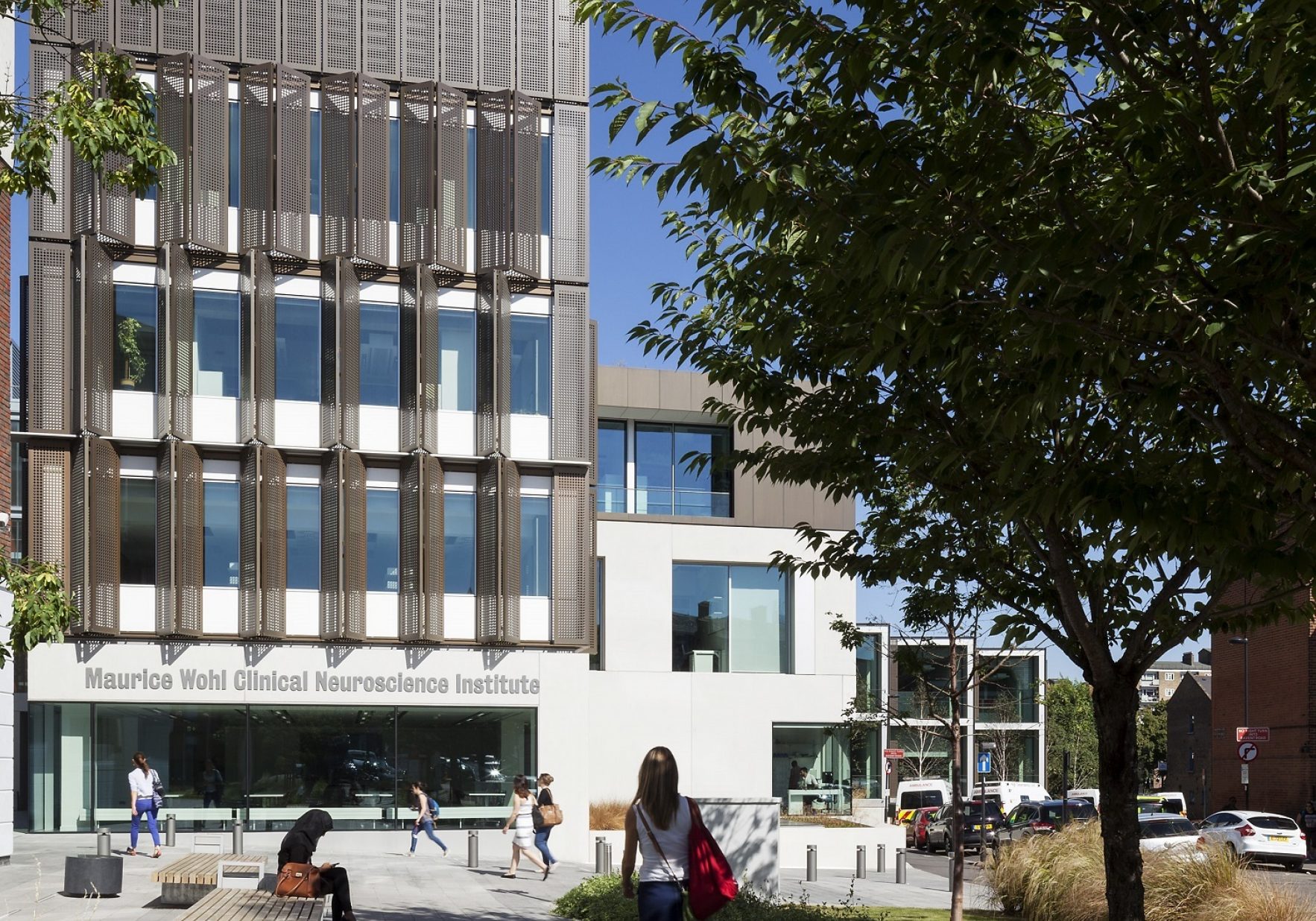
UK DRI at King’s College London
From FTD to ALS: understanding disease mechanisms to design smarter diagnostics and effective treatments.
- Specialisms at King's College London
- Frontotemporal dementia and amyotrophic lateral sclerosis
- Parkinson's and dementia with Lewy Bodies
- Vascular dementia, including diabetes and Metabolic Syndrome
- Mechanisms of tauopathy and synaptopathy
-
Read more about King's College London
The UK DRI at King’s College London is mapping out the earliest changes in the brain associated with frontotemporal dementia (FTD) and amyotrophic lateral sclerosis (ALS) in cellular and animal models and in people to gain a much deeper understanding of the causes of these conditions. The team focus on the misfolding and aggregation of the protein TDP-43. They aim to uncover fundamental mechanism common to several protein misfolding disorders that can inform the development of therapies for multiple forms of dementia.
They are examining the causes and consequences of TDP-43 accumulation at the molecular level, specifically looking at its RNA binding activity, the transport of proteins in and out of the cell nucleus through the nuclear pore and the clearing away of aggregated proteins.
UK DRI at King’s College London is located in the newly built Maurice Wohl Clinical Neuroscience Institute on the Denmark Hill Campus which houses the Nikon Centre of Excellence for Neuroscience Imaging.